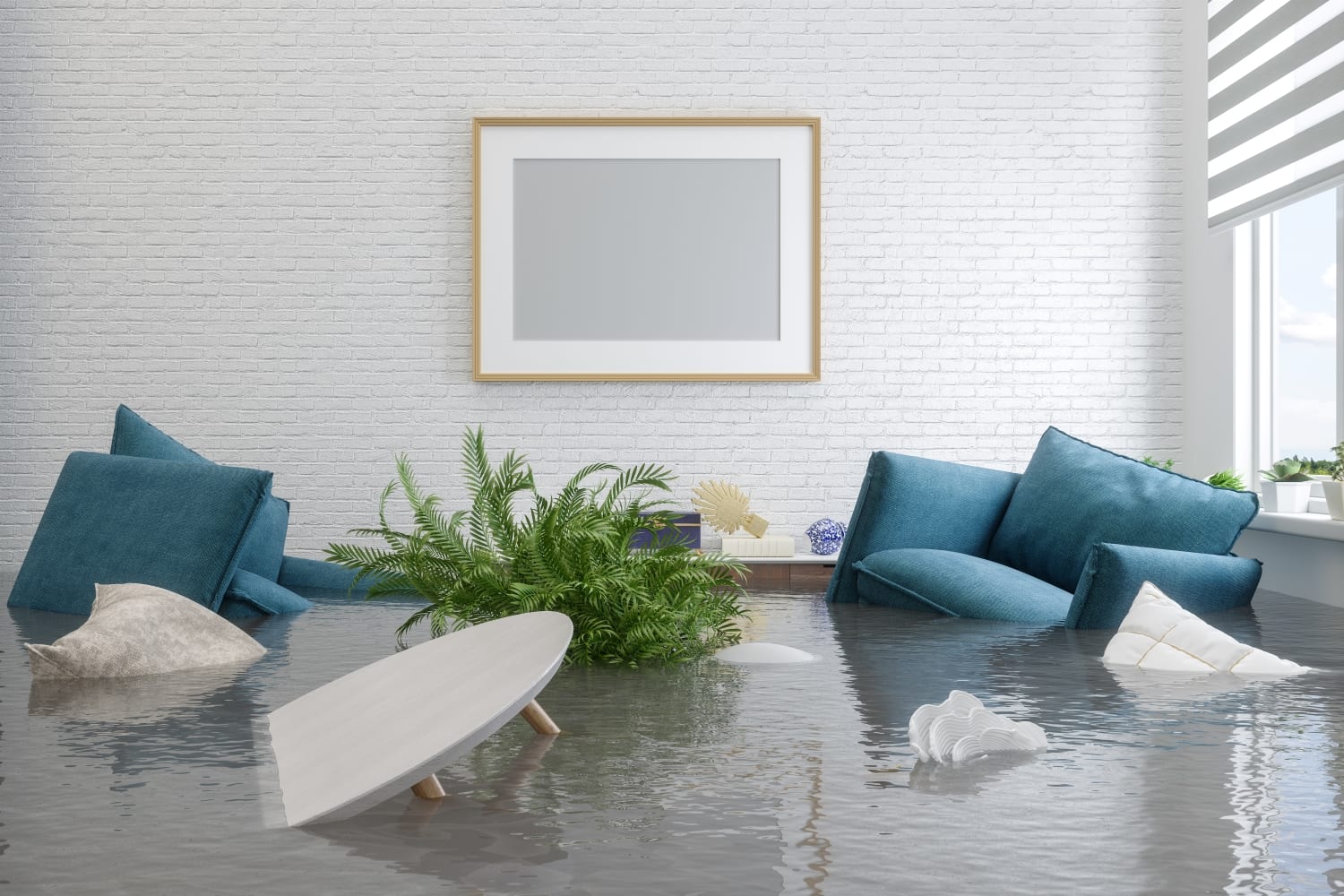Of all the possible disasters that can damage a home, floods are the least predictable in terms of the damage that they may cause.
Some homeowners are able to salvage their homes even if they have to dispose of some furniture, appliances, and items such as carpeting and curtains.
Other homeowners find themselves faced with tens and even hundreds of thousands of dollars in repairs. Even then, mold may still develop behind walls and in other places where water damage cannot easily be seen.
Unfortunately, many people do not realize that their homeowner’s insurance will not cover flooded basement until it’s too late.
While some of these homeowners may qualify for disaster relief assistance or a bank loan, these sources of cash often fall short of the actual costs of making a badly damaged home safe, sanitary, and functional once again. Have you been displaced from your home due to flood damage?
Is your home now structurally compromised, overtaken by mold, or otherwise unsafe to occupy?
If so, it is important that you understand your rights and options as the owner of a flood-damaged home.
Table of Contents
Why is contamination such a risk with flood water?
Flood water generally contains mud, bacteria, sewage, and chemical toxins.
This is because flood water often causes the disruption of water purification sewage disposal systems, as well as the overflow of toxic waste sites and chemical spillage.
Although the water that is absorbed by porous materials may dry, the contaminants left behind will continue to pose serious health threats.
That’s why it is a good idea to dispose of porous materials such as carpeting, rugs, mattresses, upholstered furniture, and vinyl flooring, especially if they have been underwater for 24 hours or longer.
Salvageable items and fixtures, such as those made of glass, porcelain, plastic, and concrete, should be cleaned, disinfected, and dried as quickly as possible.
How will a flood affect my electrical appliances and systems?
First and most importantly, do not enter your home if the ground is still wet unless you are certain that the power has been turned off at the mains.
The power to your home should not be turned on, even after the flood water has subsided, until a qualified electrician inspects your home and declares that it is safe to do so.
Flooding not only causes water damage, but also increases the risk of fire through:
- Improper generator use or maintenance
- Leaking above-ground gas lines, containers, and tanks
- Attempts to use electrical appliances that have been exposed to water
- Electrically charged water
- Improper use of alternative heating devices, or use of such devices near combustible materials
Do not touch a circuit breaker if you are standing in water or have wet hands.
When it is safe to turn off the power to the panel containing the main breaker, manipulate the lever to the “off” position using a tool insulated by plastic or rubber.
If in doubt, contact an electrician to shut off your power. If there is a wire on the ground, assume that it is electrically charged no matter what type of wire it is.
Do not attempt to restore power or use any electronic devices or appliances until your home has air dried and you have received the approval of an electrician.
Electronics such as televisions, DVD players, washing machines, and dishwashers should be professionally cleaned before used again.
The sediments and toxins from the flood water are difficult even for professionals to remove. In some cases, these devices are simply not salvageable.
Once the power has been turned off, how can I be sure it is safe to enter my home?
Some structural damage to your home may be apparent, while other damage may require closer inspection. You can inspect your home for certain types of damage, including:
- Severe wood rot in the end grain of lumber structures
- Distortion and warping of structures such as floorboards
- Termite damage, as termites are particularly enticed by wet wood
- The visible undermining of the foundation of the home, such as the erosion of the ground at the base of the structure
- Wet wallboard, plaster, paneling, and insulation
- Roof damage, such as missing shingles, cracks, holes, and defective flashing
While your visual inspection may turn up some obvious damage, you will want to enlist the services of professionals to perform more thorough inspections of these structures, as well as of.
While time is of the essence in drying out a flooded home for many reasons – including prevention of mold and preservation of as many personal items as possible, not to mention the home itself – your safety and the safety of your family is important above all else.
It is better to err on the side of safety and consult with professionals before entering your home than to risk your health and possibly even your life by entering an unsafe structure.
Should I have my home tested for mold?
Generally speaking, hiring a professional to test your home for mold is an unnecessary expense at a time when expenses are already piling up.
In most cases, you can detect mold simply by using your own eyes and nose, being aware of:
- Discoloration of any sort on your walls or ceilings
- Textured growth of any color (most commonly black or green)
- Musty or earthy smells
- Foul odors
- Worsening of symptoms that might suggest an allergic reaction, such as stuffy nose, watery or irritated eyes, and wheezing
If you are able to dry out your home and remove water-logged items from your quickly enough after a flood, you may be able to avoid mold altogether, or at least control its spread and minimize the damage that it causes.
Will my homeowner’s insurance cover damage caused by a flood?
Unfortunately, the answer to this question is almost certainly not. The vast majority of homeowner’s insurance policies distinguish between water damage and flood damage, covering losses caused by the former and not by the latter.
If you live in a high-risk flood hazard area and have a mortgage from a federally backed or insured lender, then the distinction between water damage and flood damage is moot; you already have flood insurance as a condition of your mortgage.
If, however, you do not have flood insurance, you will have to consider alternative means of financing the repairs to your home.











